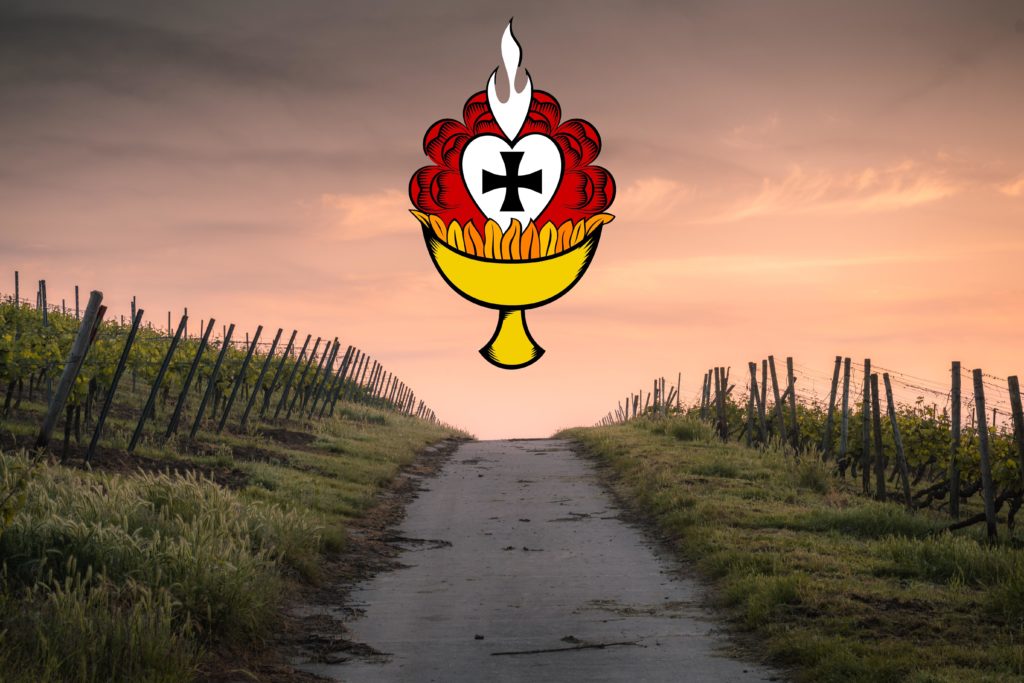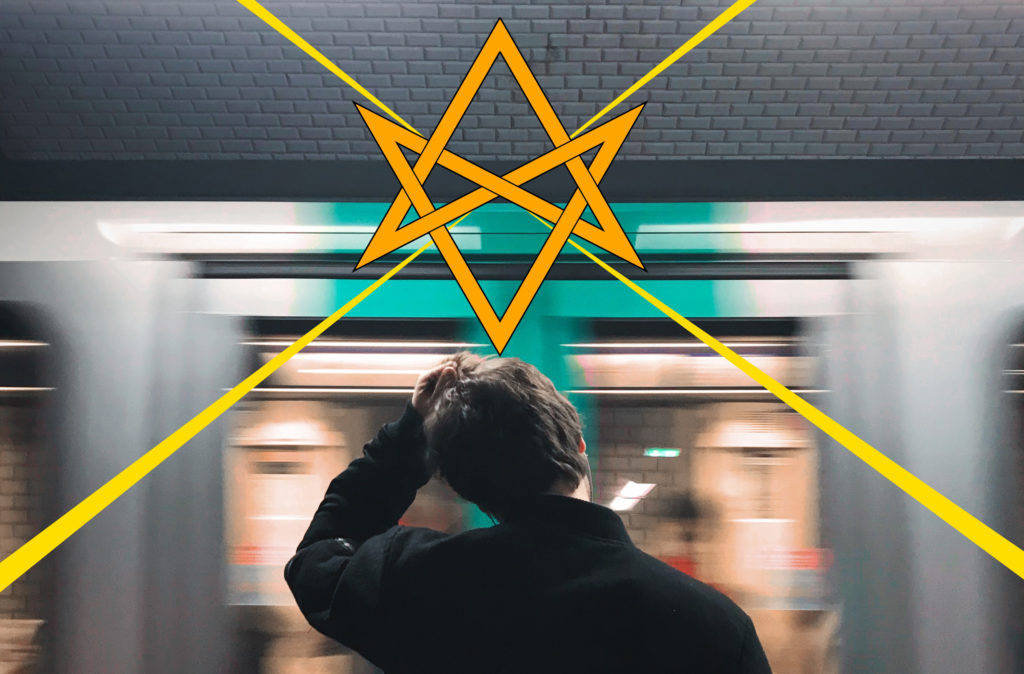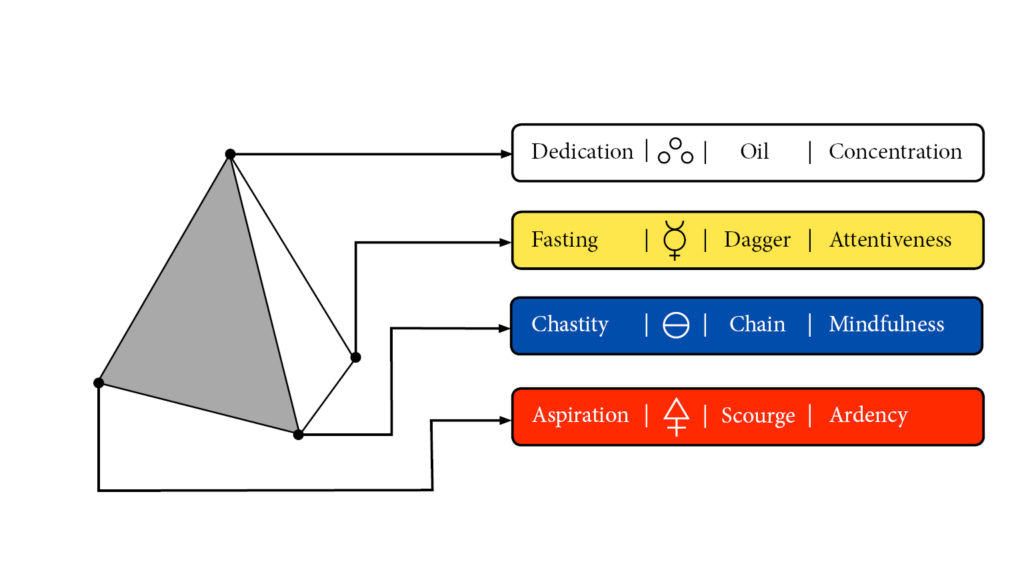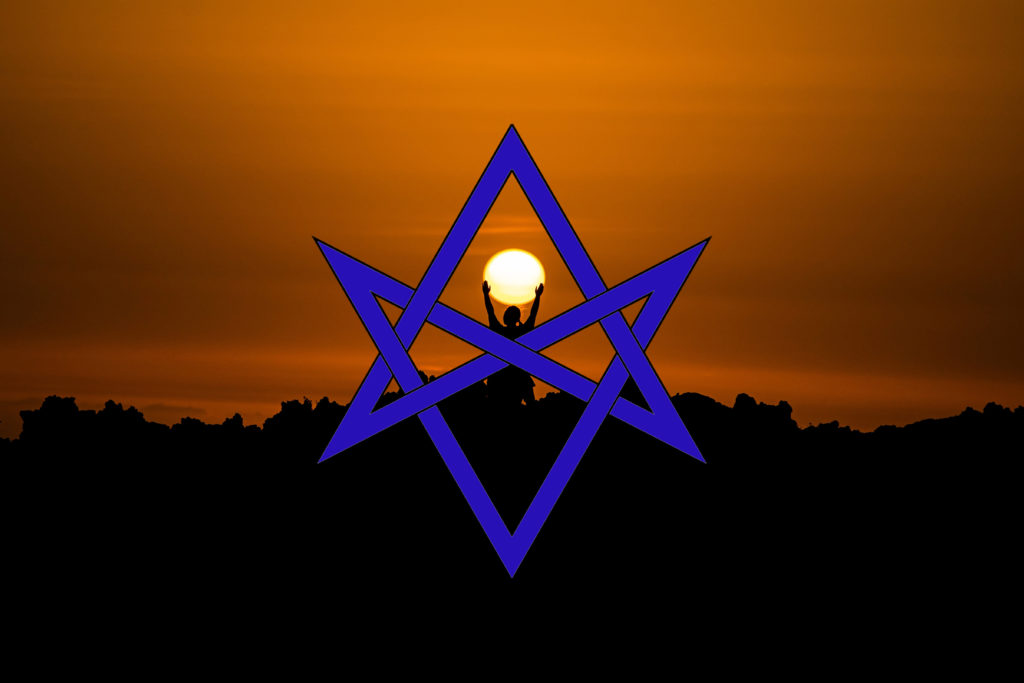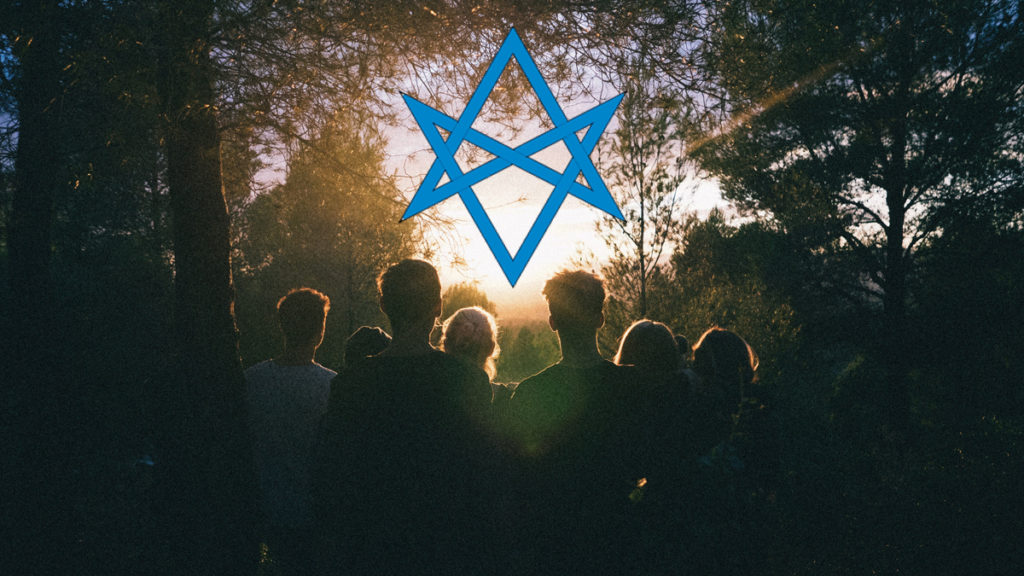
The purpose of any O.T.O. local body is to assist individuals to find their respective true wills and to promulgate Thelema. Differences in local culture notwithstanding, that’s what each lodge, oasis, or camp has a duty to do.
There are many ways individuals can interact with us. There are the obvious ones like attend Gnostic Mass, take initiation, become a member, or serve as clergy.
There are the less obvious and perhaps less appreciated ones like washing glasses after Mass, taking out the trash, making a $5 donation, or even clicking “Like” on a social media post.
But all these ways of interacting with O.T.O. are done in service to our ultimate purpose, which is help individuals bring about positive life change by finding their true wills and to promulgate Thelema.
This is our unique gift. It is the impact that unites us. When we keep this cause at the forefront of whatever we do, we best serve our communal goals and thereby best serve ourselves as members.
Crowley elaborates on this supreme cause in a variety of ways. One of the most conspicuous—which appears both on the Preliminary Pledge Form and on the O.T.O. USA website—says that O.T.O. is:
…pledged to the high purpose of securing the Liberty of the Individual and his or her advancement in Light, Wisdom, Understanding, Knowledge, and Power through Beauty, Courage, and Wit, on the Foundation of Universal Brotherhood.
Like most things that Crowley writes, he is referencing the Holy Qabalah here. The concepts relate to the sephiroth in the following way:
- Light – Kether
- Wisdom – Chokmah
- Understanding – Binah
- Knowledge – Chesed (and arguably the whole of the Ruach as comprehended in Daath)
- Power – Geburah
- Beauty – Tiphareth
- Courage – Netzach
- Wit – Hod
- Foundation of Universal Brotherhood – Yesod
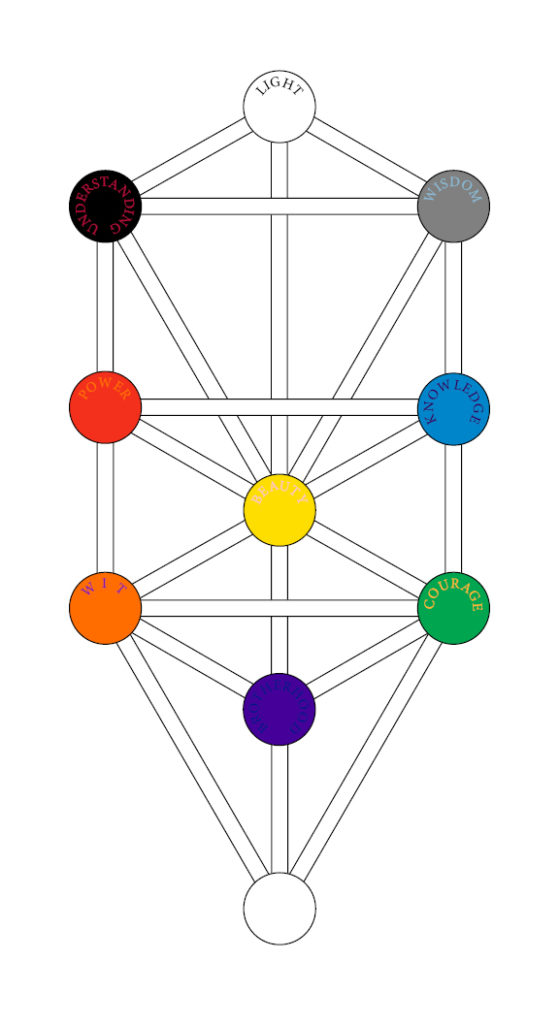
This is a useful way to think about the means by which we assist individuals and promulgate the Law of Liberty.
Here is just one way to think about these means:
Light: While the light represented by Kether (Ain Soph Aur) is unlimited and therefore without opposition, it is helpful to convey this concept to our minds in opposition with darkness. We confront the darkness of the human condition when we find ourselves groping for solutions to barely understood problems. Light represents clarity about fundamental reality that comes from understanding the Law of Thelema. It is knowing that whatever difficult situation we find ourselves in, there is a solution, and that solution is to know and to do one’s true will.
Wisdom is the ability to put that solution into action based on life’s experience. A large part of that is “minding one’s own business,” i.e., making the development of one’s own true will the center and theme of one’s life without being overly concerned with the opinions of others. As a society of individuals pursuing different paths, O.T.O. offers many opportunities to practice this kind of discernment.
Understanding entails the rejection of superstition. One cannot simply will for an end to skepticism. Its end is only achieved in samadhi or in mystical union with the Divine through meditation and prayer. Short of that, ultimate reality cannot be known in and of itself. We therefore practice tolerance as a way of life. When we embody this value in our lodges, oases, and camps, we invite a great diversity of points of view, life paths, and backgrounds, thereby enriching our communities and promoting maximal growth through the intersections of these points of view.
Knowledge: We promote scientific religion. We do not demand that individuals accept premises without sufficient evidence. As a result, we do not place arbitrary restrictions on individuals’ advancement in our organization or in their self-development. Instead we give them the tools necessary for growth and fulfillment.
Power: We emphasize self-empowerment and self-control over the control or manipulation of others. We recognize that the greatest power comes from individuals having the maximum amount of control over their own lives, including their physical and emotional impulses. We align ourselves with those who reject coercion and tyranny in all its forms.
Beauty: Our spirituality is not merely private or mystical in nature. Magick is meant to create harmony between the desires of individuals and the world around them. Our spirituality is therefore sensuous in nature, as beauty is the image of the reconciliation between what is and what ought to be. We perform our rituals rightly, with joy and beauty.
Courage is not freedom from fear but rather the capacity to withstand, to carry, and to act appropriately even while experiencing fear. We do not promise that every step along this path is going to be warm cookies and ice cream. But we do provide opportunities—through initiation and through fraternity—to learn and to practice courage, truthfulness, and other forms of emotional intelligence.
Wit is the capacity to think quickly, to know how and when to apply concepts. O.T.O. consists in a diverse group of individuals from many backgrounds. As such, there are many opportunities for novel forms of interaction. Novelty throws us back on our own resources. It demands spontaneity rather than repetition. In other words, it requires learning.
Universal Brotherhood (or Sisterhood or Siblinghood as we now say) is both the foundation of all that precedes as well as its natural culmination, just as Yesod is both the “foundation” of the Tree of Life as well as the natural endpoint on the astral plane of any magical current. It is an image of the world in which the gifts inherent in all Points of View are capable of manifestation and expression to the ultimate. It is the world we are attempting to create by bringing about life change, one individual at a time.
As Crowley says in the essay “Man” in Little Essays Toward Truth:
The Quest of the Holy Grail, the Search for the Stone of the Philosophers—by whatever name we choose to call the Great Work—is therefore endless. Success only opens up new avenues of brilliant possibility. Yea, verily, and Amen! the task is tireless and its joys without bounds; for the whole Universe, and all that in it is, what is it but the infinite playground of the Crowned and Conquering Child, of the insatiable, the innocent, the ever-rejoicing Heir of Space and Eternity, whose name is MAN?
This is merely a small sample of all the ways in which O.T.O. bodies give the gift of life change with the purpose of securing liberty and free expression of all individuals. These are the gifts we should leverage for our self-development and for the growth of our communities.
What other ones can you think of?

